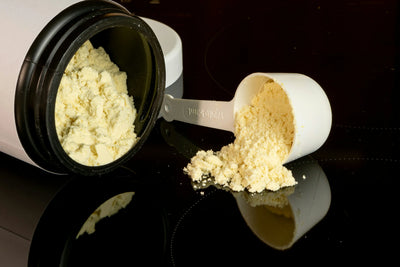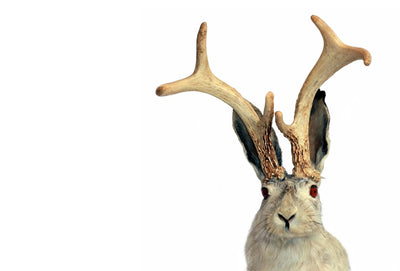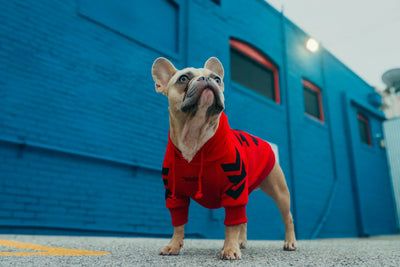Introduction
A common and nutritious snack that is created with just a few ingredients, rice cakes are accessible in most pantries.
Are they safe for dogs, though?
The simple answer is that dogs can safely eat rice cakes, but only in moderation and in tiny portions.
Although rice is a common ingredient in dog treats, it's crucial to avoid giving your dog too much food since this could lead to gastric issues. When feeding rice cakes to your dog, there are other factors to take into account, such as size, flavor, and possibly harmful substances.

Can Dogs Eat Rice Cakes?
To ensure the safety of rice cakes for dogs, read on before providing them as a snack:
As previously stated, rice cakes are not intrinsically harmful. Compared to other human foods, rice cakes are safer even though they are made from rich white rice and offer few health advantages. The other ingredients, particularly the flavorful ones, are the crux of the issue.
The majority of rice cakes are unsafe to consume because they are available in a wide range of tastes and brands. If you are going to provide rice cakes to your dog, make sure they are ordinary, low-sodium rice cakes. Dehydration can result from even ordinary rice cakes with high salt content, which might cause further issues. A small portion of ordinary rice cake is acceptable as long as your dog is fed a balanced diet.
Are Rice Cakes Good for Dogs?
Although they are acceptable to consume, rice cakes aren't very good for your dog's health. Although rice is frequently found in dog food, it is as crucial in human nutrition.
One of the best sources of carbohydrates that both humans and dogs require, it is also one of the most widely consumed grains worldwide. However, even rice can have negative effects by increasing blood sugar levels, which can be harmful for dogs who are diabetics or who are losing weight.
The majority of rice products also contain a lot of puffed white rice, which, when turned into rice cakes, has little to no nutritious value. An odd piece of rice cake is acceptable as long as your dog is receiving a balanced diet.
Health Benefits or Risks of Rice Cakes for Dogs
Despite their reputation as a low-calorie snack, rice cakes are not always good for dogs. As previously stated, rice may even be problematic for certain dogs.
Compared to brown rice, white rice is thought to be calorie-free, hence the health advantages of white rice cakes are minimal per calorie. Even with fewer calories, your dog can benefit from other human meals.
The main benefit is that they are safe for your dog, so if he gets one, he won't need to visit an emergency veterinary hospital.
The fact that rice is a rich source of carbs and a tiny bit of protein may be advantageous, but after rice cakes are cooked, these nutrients are only present in trace levels, and if you give your dog a portion that is too large, it could choke them.
Can Dogs Eat Flavored Rice Cakes?
No, flavored rice cakes are not suitable for dogs.
The majority of flavored rice cakes contain sugar and dairy, two substances that may be harmful to your dog's health.
Sugar can result in oral issues in addition to weight gain and high blood sugar. In dogs with lactose sensitivity, dairy, a common component that is healthy in moderation, can cause excruciating indigestion.

You should stay away from other rice cakes that contain spices like onion and garlic powder. In addition to causing moderate to severe digestive issues and red blood cell destruction, garlic and onions are toxic to dogs. Spices are generally unsafe for dogs to eat, so it's best to keep them away from them to avoid any health problems.
Can Dogs Eat Raw Rice Cakes?
No, this shouldn't be an issue because rice cakes are usually baked and processed. Don't give your dog raw rice if you make rice cakes at home. Raw rice can nearly double in size and absorb stomach acid, resulting in an uncomfortable and distended abdomen.
Additionally, it is difficult for your dog's stomach to process and digest, which can result in uncomfortable diarrhea. Fortunately, store-bought rice cakes can be consumed straight from the container, and rice cakes are rarely prepared at home.
Can Dogs Cook or Bake Rice Cakes?
Yes. Dogs can eat cooked and baked rice cakes, but only in small pieces.
All store-bought rice cakes are processed and baked so they can be eaten right out of the bag. Cooked white rice itself is usually safe to eat and can even treat an upset stomach, so regular rice cakes purchased at the store or fully cooked at home are safe.
We recommend feeding small pieces to see how your dog's stomach reacts, especially if your dog is prone to digestive problems.
Can Puppies Eat Rice Cakes?
Although rice cakes are generally regarded as harmless, it is not advisable to give them to your puppy.
Stick to puppy-appropriate snacks because puppies' bodies are always changing and their stomachs are extremely sensitive.
Nevertheless, if your puppy eats a tiny bit of rice cake, there's no reason to freak out. Rice cakes won't lead to any serious health issues, though they might disturb your stomach a little.
Should I Give My Dog Rice Cakes?
Giving your dog any human food has a slight danger, particularly when it comes to manufactured snacks.
Although they aren't harmful or poisonous, rice cakes aren't a good snack for your dog. Give your dog a little bit here and there if you can't help yourself.
Nonetheless, there are many nutrient-dense human meals available, like strawberries and blueberries.
Feeding your dog human food also has the drawback of teaching them to begging for your food regardless of what you eat.
Are Homemade Rice Cakes Better?
Homemade food is often safer for both you and your dog to consume. It's simple to determine whether homemade food is safe because recipes give a list of components.
Your dog should be able to eat rice cakes if you make them at home and they don't taste like sugar or spices. Actually, it can be enjoyable to occasionally add a small amount of natural peanut butter. Homemade rice cakes are safe as long as they don't contain any dangerous ingredients.

What Are the Rice Cakes Nutrition Facts?
Carbohydrates, which are mostly obtained from the starch in glutinous rice or rice, are the primary component of rice cakes nutrition facts. With roughly 33.9 grams of carbohydrates per 100 grams of rice cakes, the body gets sustained energy from this rapid energy source.
Below is a table summarizing the nutritional components of rice cake nutrition facts:
| Nutrient | Amount per 100 grams | Description |
|---|---|---|
| Carbohydrates | 33.9 g | Main energy source, primarily from starch in rice or glutinous rice. |
| Protein | 3.3 g | Essential for body tissue repair and growth. |
| Fat | 0.6 g | Low in natural content; may increase with cooking methods like frying. |
| Calcium | 31 mg | Important for maintaining bone health. |
| Iron | 1.6 mg | Promotes hemoglobin production. |
| Potassium | 81 mg | Helps maintain normal nerve and muscle function. |
| Magnesium | 43 mg | Supports various bodily functions. |
| Zinc | 1.36 mg | Beneficial for brain development and cognitive function. |
| Vitamin B1 (Thiamine) | 0.03 mg | Supports energy metabolism. |
| Niacin (Vitamin B3) | 1.9 mg | Important for skin and digestive health. |
| Vitamin E | 1.15 mg | Antioxidant properties. |
| Dietary Fiber | 0.8 g | Aids in digestion and promotes gut health. |
| Phosphorus | Trace | Essential for bone health and energy production. |
| Manganese | Trace | Important for bone development and metabolism. |
| Copper | Trace | Supports immune function and bone health. |
| Selenium | Trace | Antioxidant properties; supports thyroid function. |
Note: Depending on the particular components and preparation techniques utilized, the nutritional content may differ slightly.
Conclusion
In moderation, rice cakes for dogs are acceptable for your dog to eat, even if they may be a healthier option for people.
You shouldn't be alarmed if your dog eats a flavorless piece of plain rice cake that you dropped. Breaking off a small portion is acceptable, but you can give your dog healthier food.
Make sure the piece is small enough for your dog to not choke on it if you are adamant about sharing your white rice cake. To ensure your dog's system doesn't respond negatively to the new food, feed it to them gradually over time, just like you would with any other new meal.
Related Read
Top 7 Benefits of Goat Milk for Dogs to Boost Health and Vitality Naturally





